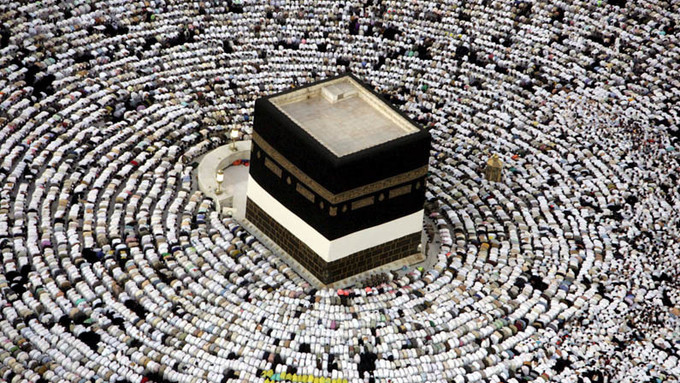Fit For Allah: Nutrition and Exercise Through the Lens of Islam

Fit For Allah Series: Part 1 | Part 2
An integral part of wellbeing for anyone is his or her health. Without any doubt, the health of an individual is a predetermining factor for the kind of guidelines they follow in life. Islam does not take this aspect of health lightly and throughout the Qur’an, books of Hadith and pillars of Islam, one can find different ways in which physical health is encouraged.
The lines below explain how three of the five pillars of Islam work in relation to our spiritual and physical health. These three pillars are directly impacted and influenced by your physical health and your physical health is needed so that you can maximize these pillars and the rewards and the benefits.
We begin with our intention to be of sound mind, body and soul in gaining nearness to God (Allah subhanahu wa ta'ala) and the Prophet (peace be upon him). Our body is a trust (imana) given to us by Allah (subhanahu wa ta'ala) so we must care for this body in every way we can.
Pillar 1: The elevation of our physical and spiritual health is connected to the prayer. The prayer is performed five times a day and uses all the major muscles and joints of the body, 650 of them to be exact. It starts with the ablution, which is a requisite for performing prayer and in addition, to gain and receive all the rewards, your seven limbs need to touch the ground. For example if one can’t properly make sujood (prostration) then they lose out on the full reward and connection during the prayer. In order for us to be able to touch our limbs to the ground, physical health is required. Since so many of our muscles are being used, letting our body become sedentary/inactive results in losing mobility and flexibility, resulting in limitations or possible discomfort in any of the major joints (ankle, knee, hip, spine, shoulder, head and neck). We should aim to maintain optimal fitness/health so our seven limbs can touch the ground for as long as possible throughout our life.
Pillar 2: The second pillar is fasting. Imam Al Ghazali spoke about three levels of fasting. The first level is the general level in which people are fasting from food, water and intercourse from dawn to sunset. The second level is the specific level in which all your senses and body parts fast with you for example the eyes, ears, tongue, legs, hands etc. The third level is the most special of the specific levels in which your heart is fasting from anything else but Allah (subhanahu wa ta'ala).1
We should strive to follow the Sunnah of the Prophet (peace be upon him). It is his (peace be upon him) way that is the best and his (peace be upon him) guidance that is perfect. We need not look any further and should forget the fads and gimmicks that try to lure us in.
Another reason people tend to steer very far from the prophetic tradition is because cultural traditions dictate rituals of what to eat for suhoor and iftar. There are so many things for us to consider mentally, emotionally, physically and spiritually on how we chose to fuel our bodies.
Simple recommendations from the Prophetic traditions are:
- To eat whole foods while avoiding chemical and processed foods
- We should combine foods properly for better digestion - for example the Prophet (peace be upon him) did not mix milk with fish or fresh dates with dried dates
- Don’t eat until you are full - eat just enough to keep your back straight as our beloved Prophet (peace be upon him) has conveyed to us
- We should eat food in their seasons and locally grown
- We should not drink with our meals because it disrupts digestion and after a long day of fasting it might be necessary to drink but try to limit it
These are just simple recommendations from our Prophet (peace be upon him) that we should strive to implement to gain nearness to Allah (subhanahu wa ta'ala) during the sacred month of Ramadan and outside of it.
Pillar 3: The third pillar, where physical health is a vital component, is in performing the minor and major pilgrimages of Umrah and Hajj. Optimal physical health is needed to endure the rigorous conditions that include, for example, the circumambulating (tawaf) the Kaaba, walking on the marble floors between the two hills Safa & Marwah seven times (roughly 1.3mi), and dehydration due to the very high temperatures and hot dessert sun. Prior health greatly impacts how these factors affect you or not. We need to prepare our minds, body and soul for this journey. Prophetic tradition is to implement moderate exercise to attain/maintain optimal health, ultimately enabling and helping us draw nearer to God on these sacred journeys.
In conclusion, we are all unique individuals and we each have different starting points and our journeys will all be very different. The next part of this series of articles will discuss how one can start this journey and the steps needed to set the correct intention and how doing so will open the doors to ones physical health improving, God Willing.
References:
1Illustrated from the book of: ‘Reviving the science of religion.’
Faith & Spirituality Related Articles

5 Practical Steps To Get You Ready for Ramadan
As Ramadan is less than a month away, we might feel we often haven't done enough to prepare for it. Here are 5 things we can do right now during Shaban to make sure that we get the most out of Ramadan. The Prophet (Peace & Blessings upon Him & His Family) supplicated,” O Allah give us the blessings of Shaban and give us the treasure of Ramadan.”

Hajj at Home: Kindling the Spirit of Arafah
Even if we are not on Hajj this year, our situation is no different. We navigate through the complexities of our daily life, immersed in the never-ending responsibilities of work and family, inundated with the intrusions of technology and social media into every minute of our lives, moving from place to place and idea to idea.
